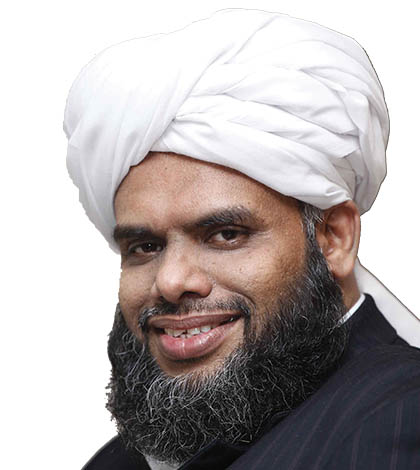 Among the top most influential Muslim figures on ‘The Muslim 500’, Sayyid Ibrahimul Khalilul Bukhari, founder of Ma’din Academy, wears many hats and is sought after by several governments across the globe. In an interview to ENN, Bukhari says he strongly believes that education is a powerful way to transform lives and a means to end inequalities suffered by minorities. Excerpts from an interview
Among the top most influential Muslim figures on ‘The Muslim 500’, Sayyid Ibrahimul Khalilul Bukhari, founder of Ma’din Academy, wears many hats and is sought after by several governments across the globe. In an interview to ENN, Bukhari says he strongly believes that education is a powerful way to transform lives and a means to end inequalities suffered by minorities. Excerpts from an interview
When did you establish Ma’din Academy?
We established Ma’din Academy in 1997 to improve the educational and social backwardness of minorities in Kerala’s Malappuram district. Two-thirds of the population in Malappuram is Muslim and their condition was very pathetic.
What was your philosophy behind starting the academy?
I strongly believe that education is a powerful tool that can transform lives and end all sorts of social and economic inequalities of the minority communities. It is through quality education that we have to strive towards the upliftment of the poor and needy into the mainstream.
Explain the situation before your institution came into being.
Before the establishment of Ma’din Academy, it was very sad to see that unlike several other districts in Kerala, Malappuram did not have dedicated institutions of higher and technical education for minority communities, especially Muslims, who formed the largest portion of its total population. For example, the SSLC results of the government schools in the region were extremely poor. In most of the schools, only 20 per cent students used to pass the public examination. The people were less aware of the importance of imparting knowledge and getting educated. As a result, the social, economic and educational status of the minorities remained submerged in backwardness and the future of the students looked bleak.
Tell us about the Academy’s reach.
Ma’din Academy has more than 25 educational and research institutes like the Arts and Science College, Polytechnic College, Industrial Training Institute, Arabic Study Center, Spanish Academy, Institute of French, Institute of Turkish, Language Resource Center, School of Journalism, Special Schools for the blind, deaf and dumb, Research World, Knowledge Hunt, Library and Research Center, Model Academy, Higher Secondary School, Public School (CBSE), Residential School, Molur Central School, Home Science Center etc.
What were the challenges you faced while setting up the Academy?
Insufficient funding and infrastructure along with the availability of suitable plots for construction of buildings are some of the challenges we face.
Any tie-up with other central or foreign universities to offer more courses?
Ma’din Academy has signed Memorandum of Understanding (MoUs) with several national and international universities and institutes and has been carrying out various educational and cultural activities in collaboration with foreign universities. They include International Islamic University of Malaysia (IIUM) University of Southern Queensland, Australia, Instituto Cervantes, Spain, Griffith University Australia, Dar alMustafa University, Tarim, Hadhramout, Yemen and Tabha Foundaton, UAE.
What are your expectations from the new government?
We are very happy and satisfied with the BJP-led government’s projects for a skilled India. We appreciate the government’s allocation of ` 100 crore for modernisation of Madrasas. We expect that the educational development activities will be more inclusive and accountable in the Modi government.
What are your suggestions regarding improvement of minority education?
More educational institutions and infrastructural development should be realised in those areas which are socially and educationally backward, especially in eastern and northern India. A special quota for Muslims under OBC should be passed in the parliament.









 In the last eight decades since its inception in 1927, the Konkan Muslim Education Society has spread its sphere of operations from one Anglo-Urdu high school to several educational institutions, including G M Momin Women’s College in Bhiwandi. In an interaction with ENN, Aslam Fakih, President of the K M E Society says the government needs to create a better ecosystem for minority educational institutions to help build a better India. Excerpts from the interview
In the last eight decades since its inception in 1927, the Konkan Muslim Education Society has spread its sphere of operations from one Anglo-Urdu high school to several educational institutions, including G M Momin Women’s College in Bhiwandi. In an interaction with ENN, Aslam Fakih, President of the K M E Society says the government needs to create a better ecosystem for minority educational institutions to help build a better India. Excerpts from the interview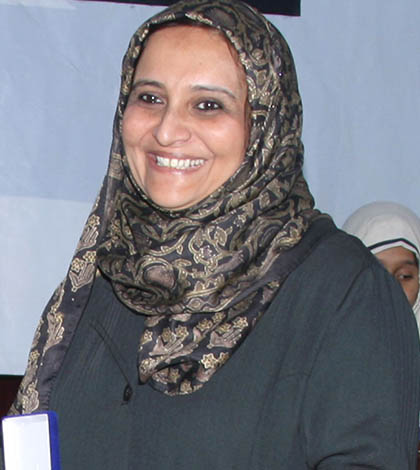
 Oasis International School, an educational initiative by a group of Muslim women in Bangalore, believes that imparting quality education will result in leaders guided by justice and informed by reason, writes Ayesha Masood
Oasis International School, an educational initiative by a group of Muslim women in Bangalore, believes that imparting quality education will result in leaders guided by justice and informed by reason, writes Ayesha Masood
 With the inspiration that education is not just the government’s priority, but a subject of people’s initiative, Dr Nakadar Institute of Knowledge in Nandasan, Gujarat, was established in 2004 to play an integral role in the development of an economically healthy country. An ENN report
With the inspiration that education is not just the government’s priority, but a subject of people’s initiative, Dr Nakadar Institute of Knowledge in Nandasan, Gujarat, was established in 2004 to play an integral role in the development of an economically healthy country. An ENN report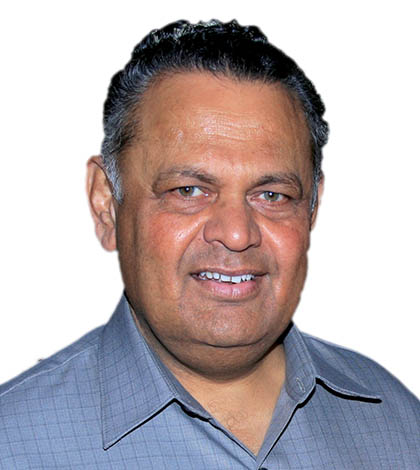
 From four schools in 1992 to 29 educational institutes, 1,100 teaching and 700 non-teaching staff with 27,000 students at the end of the 2013 academic year, it has been no ordinary journey for the Maharashtra Cosmopolitan Education Society (MCES)
From four schools in 1992 to 29 educational institutes, 1,100 teaching and 700 non-teaching staff with 27,000 students at the end of the 2013 academic year, it has been no ordinary journey for the Maharashtra Cosmopolitan Education Society (MCES)
 From being termed a fly-by-night operator to being accused of corrupting the minds of Muslims, Wahed Chowhan heard it all. However, societal opposition could not dither his resolve to educate the girl child in Sikar, Rajasthan. An ENN report
From being termed a fly-by-night operator to being accused of corrupting the minds of Muslims, Wahed Chowhan heard it all. However, societal opposition could not dither his resolve to educate the girl child in Sikar, Rajasthan. An ENN report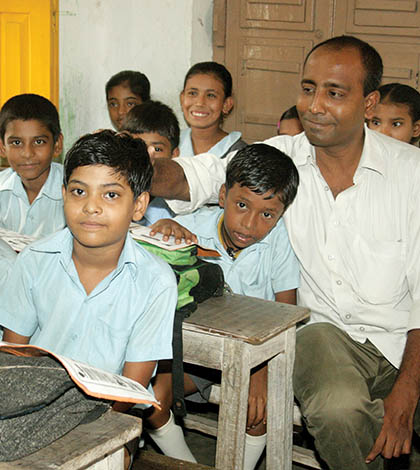
 Having been forced to quit education at an early age due to financial constraints, Mamoon Akhtar and his NGO – Samaritan Help Mission – today educate thousands of underprivileged children in the Tikiapara slums of Howrah
Having been forced to quit education at an early age due to financial constraints, Mamoon Akhtar and his NGO – Samaritan Help Mission – today educate thousands of underprivileged children in the Tikiapara slums of Howrah
 Established 113 years ago, the MEASI Association is among the oldest groups of minority educational institutions in southern India. The management institute set up under its ambit is a standalone, co-educational Muslim minority institution that emphasises on practical applications suited to the Indian environment
Established 113 years ago, the MEASI Association is among the oldest groups of minority educational institutions in southern India. The management institute set up under its ambit is a standalone, co-educational Muslim minority institution that emphasises on practical applications suited to the Indian environment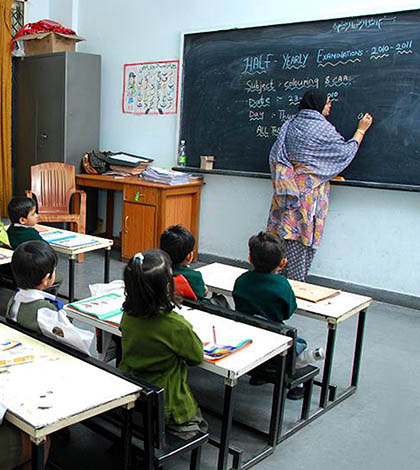
 Guided with the belief that illiteracy is the root cause of social and economic backwardness, a group of doctors in Hyderabad got together in 1983 to form the Muslim Educational Social And Cultural Organisation, an educational, social and cultural organisation for Muslims, recalls Dr Fakhrudheen Muhammed
Guided with the belief that illiteracy is the root cause of social and economic backwardness, a group of doctors in Hyderabad got together in 1983 to form the Muslim Educational Social And Cultural Organisation, an educational, social and cultural organisation for Muslims, recalls Dr Fakhrudheen Muhammed











